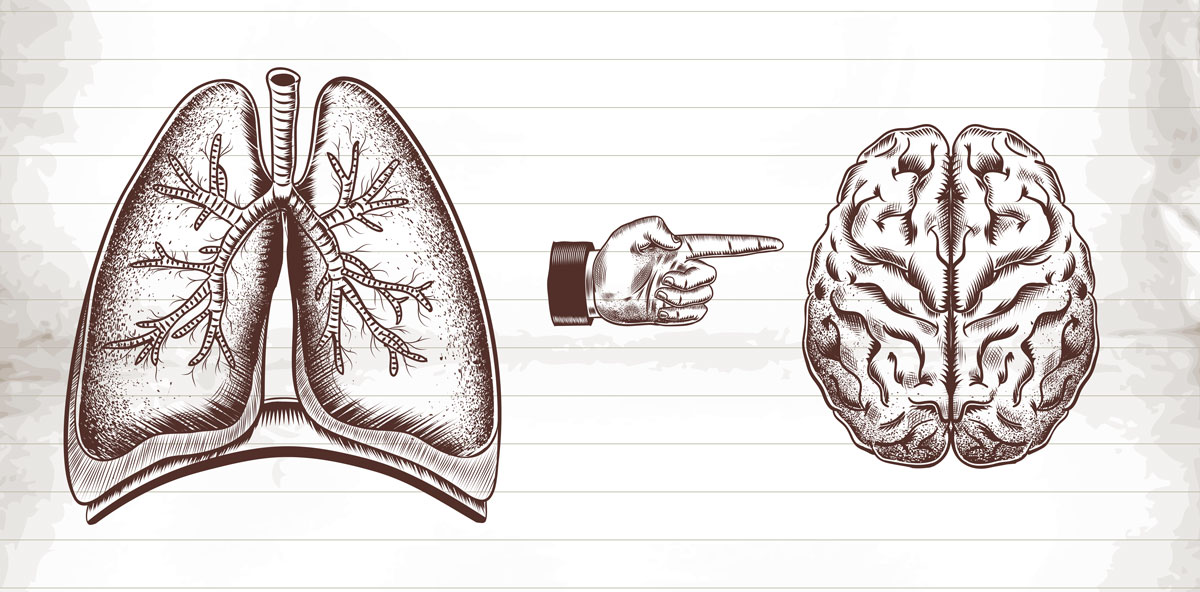Psychological distress is common and doesn’t always correlate with disease severity, a clinical psychologist says.
Grief reactions and psychological distress are common among patients diagnosed with lung disease, but discussions on mental health are often forgotten amid competing clinician demands.
Clinical psychologist Debra Sandford is a research fellow at the Royal Adelaide Hospital’s thoracic medicine department studying the psychological impacts of idiopathic pulmonary fibrosis (IPF), but has been referred patients suffering other conditions such as asthma, lung cancer, and chronic obstructive pulmonary disease (COPD).
“Distress is not always obvious or immediate, but it will be experienced by most patients to some degree and can have significant and ongoing problems for patients, their caregivers and loved ones,” said Ms Sandford, who is also the principal clinical psychologist at Quality of Life Psychology.
“The impact of psychological distress is often underestimated in terms of treatment, adherence, mortality, and morbidity … but if you don’t ask about distress, they likely won’t tell you.
“Regardless of what lung disease people have, even if it’s common such as asthma, the psychological implications can be quite significant because if you have trouble breathing it’s going to prohibit you from doing many activities that people like doing.”
The physical symptoms are not the sole cause of distress, as diagnoses of lung disease often result in significant life changes and shifts in relationship dynamics, she said – giving the example of an 82-year-old female patient who reported climbing the ladder to clean the house’s guttering because her husband had to stay inside on oxygen.
“With IPF, the average age of onset is about 65 and it impacts more men than women – so if you think for example of a 65-year-old man who had worked all his life and was looking forward to retirement, maybe kicking the football with grandchildren or buying a campervan and travelling around Australia, those things might not be possible and their plans for the future can be shattered.”
Ms Sandford said it was rare for patients with respiratory conditions to seek psychological help.
“There are a couple of contributing factors: there’s still stigma about seeing a psychologist – especially amongst older people … and in most hospitals throughout Australia the limited number of psychologists are usually attached to the cystic fibrosis or oncology units.”
However, it can be beneficial for any respiratory patient to have psychological support, she said.
“Research shows that regardless of the disease, if you have a psychologist involved with inpatient admissions, they have better mortality, better morbidity, greater adherence to their medication and shorter inpatient stays.
“When you get bad news, we would expect a normal person to have a negative emotional reaction such as feeling sad, angry, or distressed. If you have someone warning you about what you may feel, it’s less distressing when it happens. For example, ‘when you go home tonight, you might be feeling a bit blindsided, you might not remember all of our conversation, you might think of things you wished you asked your doctor.’
“Aside from talking about what they’re feeling now, we also try to get people to look to what they can still do, rather than what they have to give up.”
A common misconception was that patients must be suffering significant mental health concerns to seek psychological support, but grief was a natural reaction to a lung disease diagnosis, Ms Sandford said.
“We do find that people have a grief reaction. That comes when we have a change to our life circumstances: we grieve the life we’ve lost, and we start to think about grief in a preparatory way if we’ve been given a terminal or life-limiting diagnosis.
“Caregivers also goes through something we call anticipatory grief; they start to grieve losing their partner before they’ve actually lost them.
“But grief is also what I would call an adjusting emotion, it helps people adjust to a new normal. That grief process helps you to process what you’ve got, what you’ve been told, and to think about how your life looks now. Grief is an essential part of adjusting to any diagnosis of lung disease, because it helps you get used to that the fact.”
The impact of a diagnosis on a patient’s mental health did not always correlate with the severity of the disease, she added.
“It can be quite varied because people’s coping strategies and natural resilience can sometimes mean that they can have quite a horrible, life-limiting diagnosis, and not display too much psychological distress.
“It depends how much it impacts their world and how they perceive those impacts. But we do find with the more serious lung diseases, those that are chronic or life-limiting, at some point, often around an exacerbation, they will suffer not only physical distress but psychological distress as well.”
Ms Sandford gave a short presentation on establishing empathy with patients in short consultations, at the 2020 virtual European Respiratory Society’s International Congress.
She noted that even though clinicians strove for empathy when talking to patients, they faced competing demands.
“You’re trying to give blood test results, X-ray results, book them in for other tests, wrangle their medication, and trying to do all of it in 20 minutes or less. It is a challenge for clinicians to try to fit all that in as well as validate their patient and make them feel heard and understood.
“We looked at six things that highly empathic people do: develop curiosity about things outside of yourself, challenge preconceived ideas about certain patient populations, practice active listening, make yourself vulnerable – perhaps by sharing a short, clinically relevant story – inspire others to speak up, and empathise with those who are opposite to you – an example from a lung disease perspective might be someone who has trouble giving up smoking.”
While praising patients could be helpful, she cautioned against the idea of the “perfect patient”.
“If you’re going to praise a patient, let them know that they are still going to have an occasional bad day or week … If they’ve been told ‘you survived this or that, you’re a miracle patient,’ they often feel they have to be grateful and always okay, and can really struggle to tell their doctor that they’re not okay.”
Ms Sandford also urged clinicians to seek supportive networks for themselves and be conscious of the impacts of their work on their own mental health, as they can also be exposed to vicarious trauma and burnout through caring for distressed patients.




